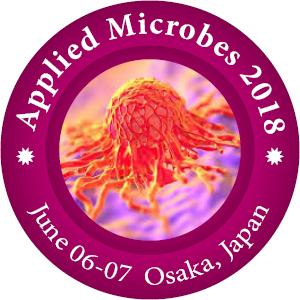Shih-Wen Cheng
Tzu-Chi University, Taiwan
Title: The study of cAMP receptor protein (CRP) regulated type 3 fimbriae in Klebsiella pneumoniae
Biography
Biography: Shih-Wen Cheng
Abstract
Klebsiella pneumoniae, is the predominant pathogen causing pyogenic liver abscess (PLA) of diabetic patients in Taiwan. However, the effect of high blood glucose on the pathogenesis of K. pneumoniae strains remains largely unknown. Bacterial biofilm represents a key virulence determinant in promoting bacterial persistence and resistance to antibiotics. The ability of bacterial adherence to biotic or abiotic substrate is an essential step for biofilm formation. Such adherence can be mediated by bacterial ï¬mbriae, which are also important virulence factors in many bacteria. Type 3 fimbriae, encoded by the mrkABCDF operon genes, are important virulence factors in K. pneumoniae pathogenesis. In enterobacteria, cyclic AMP (cAMP) receptor protein (CRP) plays a vital role as a global regulator. CRP protein regulates several essential bacterial virulence gene expressions, including fimbriae and biofilm formation, responsing to intracellular concentration of cAMP. In our preliminary study, we found that different glucose level can regulate the expression of Type 3 fimbriae. Also we found that CRP can exactly bind to the putative CRP binding site which located at the promoter region of mrkA (encoding type 3 fimbriae subunit) in K. pneumoniae. Thus, Thus, our purpose is to clarify the effect of cAMP receptor protein (CRP) on Type III fimbriae in K. pneumoniae. Loss-of-function mutagenesis is an important tool to characterize gene function. Here, we successfully got crp mutants in K. pneumoniae MGH78578 by homologous recombination (HR) using our modified pK18mobsacB suicide plasmid. Our results indicated that CRP can directly regulate the expression of type 3 fimbriae in K. pneumoniae.

